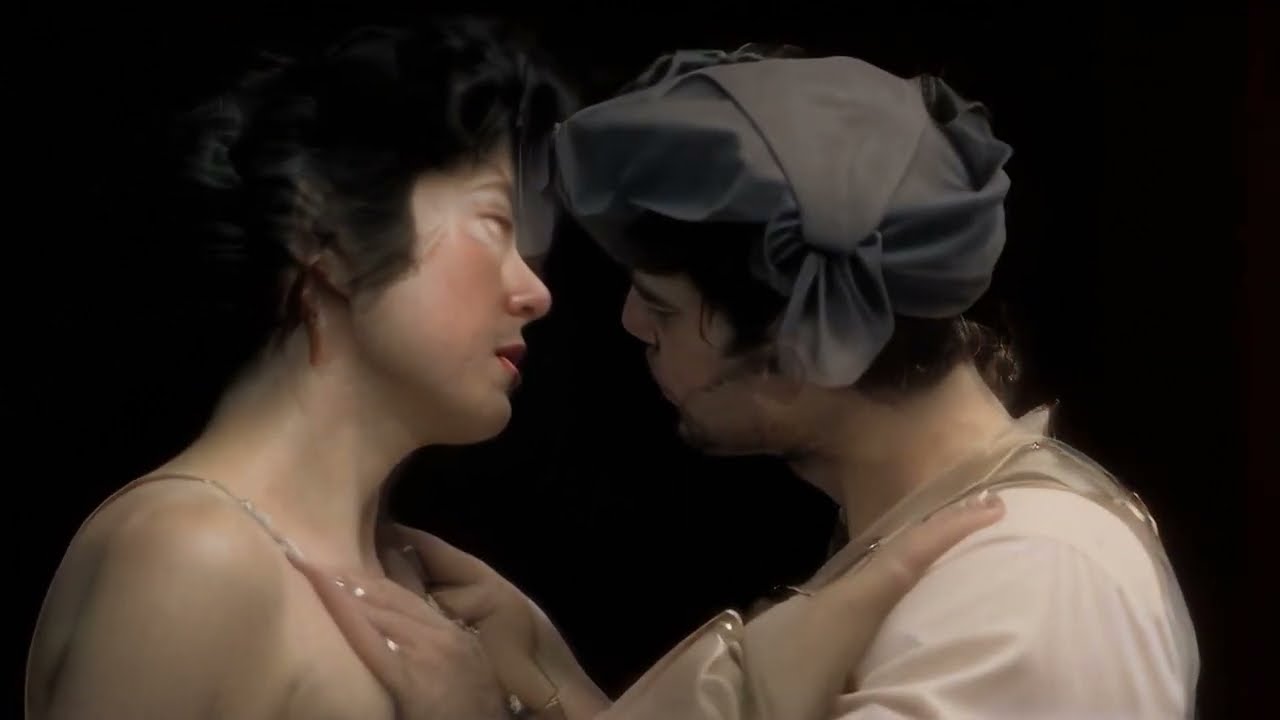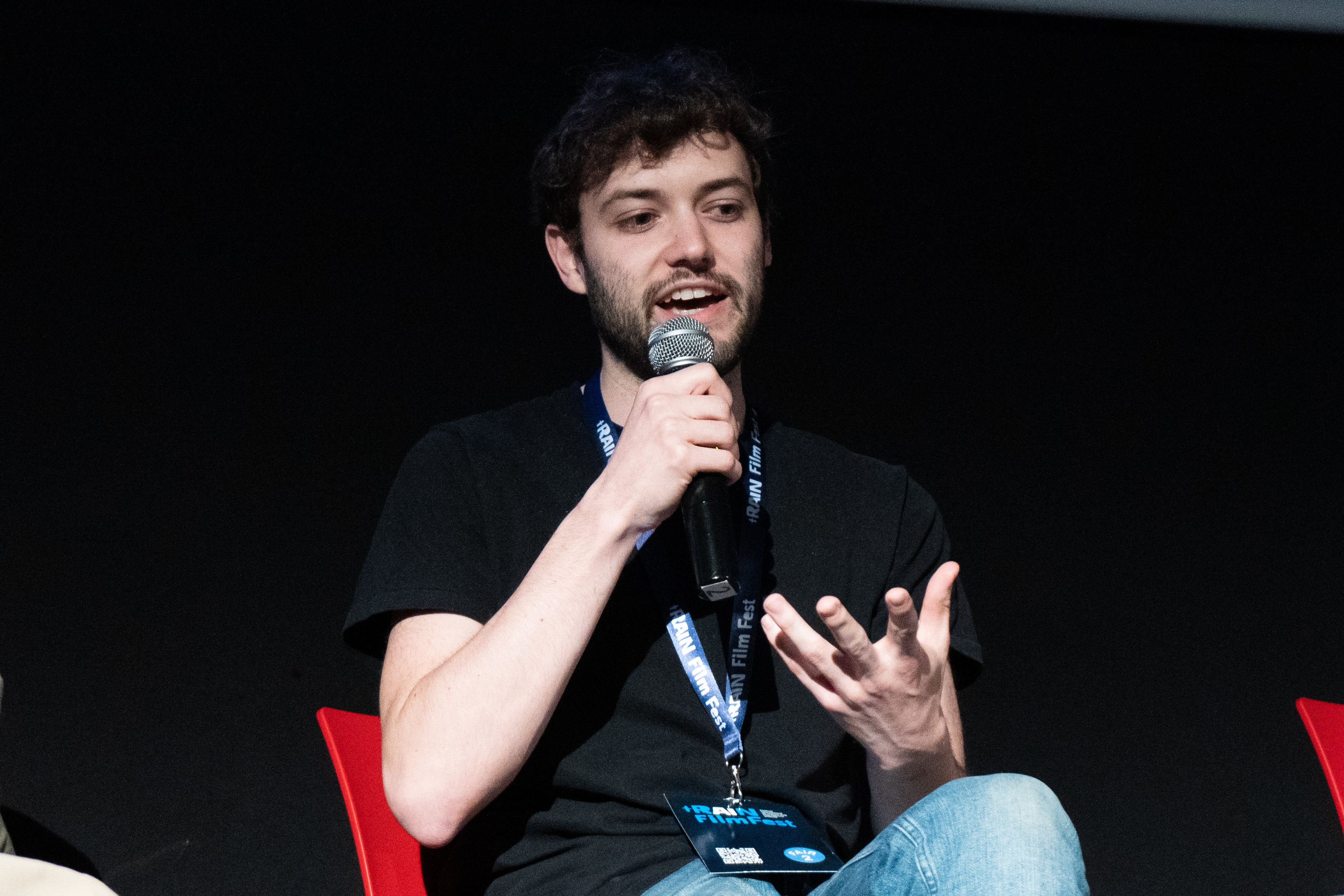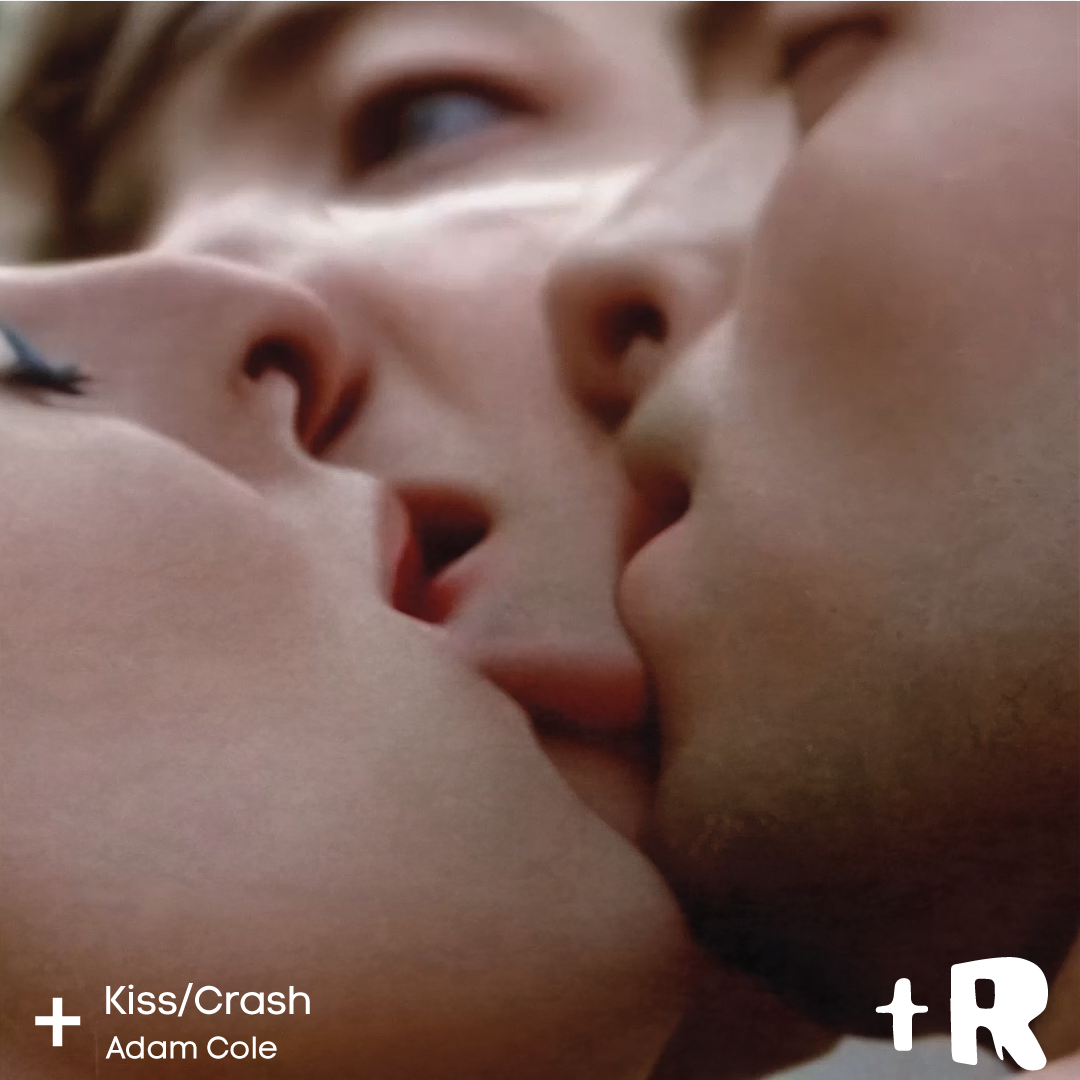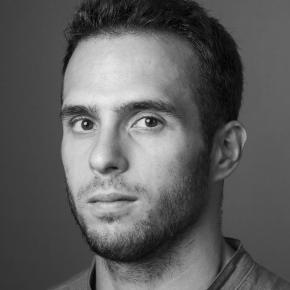Breaking Barriers: Artistic Insights from Adam Cole
Breaking Barriers: Artistic Insights from Adam Cole
“I think it was so nice to have a physical community of people around this topic"

“We are going to do what artists have always done (…) we are going to take these technologies and find ways to make them interesting, find ways to make them our own, to do things that weren't meant to be done.“
With these words, Adam Cole captures the essence of artistic innovation in the age of Artificial Intelligence technology, as he invites us into the ever-changing world of art. Last year's winner of the Jury Prize for the film “Kiss/Crash“ at the +RAIN Film Festival, a new media artist, and an enthusiast in the ground-breaking testing of art limits - Adam Cole, agreed to share his much-appreciated insights.
In the past few years, the intersection of Artificial Intelligence and art has emerged as a cutting-edge frontier. For Adam, delving into this unexplored territory began while pursuing his Master`s degree in Creative Computing. Amidst personal anxiety toward AI, the academic world opened a door for the exploration of these new possibilities. The attraction to generative AI was not only due to excitement but a response to the worry surrounding the fast-developing technology: “(…) why did I personally choose to start doing something with generative AI was really more out of an anxiety around the technology“. However, he perceived the new medium as a challenge and currently aims at: “(…) finding ways to appropriate these technologies and expose them a bit and to find ways to elevate them, to do more interesting stuff“, or in other words to: “(…) find ways to make it poetic“.

By making use of open-source tools such as RunwayML and PikaLabs, he shares that he strongly supports these consumer-facing AI tools that: “(…) help people take a step into these worlds“. Worlds in which: “(…) those technologies try to reflect our experiences as real people, but then, the way that - us - as real people, try to reflect what we see in those media technologies.” Adam shares that he finds these tools important but also enjoyable because he can: “(…) appreciate the open source tools because of the opportunity to interfere with the code, to add my processes, to experiment a bit more, which I found was very necessary for some of my projects at the start“.
AI has undoubtedly opened doors to seemingly boundless opportunities in the world of art. Yet, questions arise: Actually, are there boundaries, and should there be? Can we even define limits when it comes to art? Adam Cole reveals to us that such concerns are familiar to the online communities formed around the use of generative AI in art. He shares that even though there are various positive outcomes in terms of knowledge exchange and support, there is also a “dark“ side, where people are using generative AI for the creation of questionable content: “It is a strange world that is evolved around it. So it's not perfect, the open source world.“ Following this note, Adam shares a personal concern linked to the limits of generative AI and it is a concern, affecting us all: “I mean, in terms of limits, for me, the biggest, one of the biggest concerns is the impact on democracies and not even just markets, but on elections coming up. And knowing that these tools are going to be used to interfere with people's people's sense of reality.“

Beyond the complications around AI limitation, questions about who gets credit for AI-generated works become crucial. In a world where everyone can create with the help of AI, how do we define authorship in this context? Adam Cole delves deeper into these dynamics: “(…) it's very context-dependent. But of course, the other side of the question is artists who feel like they've been robbed of their intellectual property, which I think is a really important conversation, especially for companies who are profiting off it.“ As a recognized artist he discloses to us that: “I personally, with my work, don't feel so bothered by it. Because I know how much work goes into making a quality piece of something that I make that I'm proud of.“ Therefore, we find ourselves in the midst of a “territory“ yet to be fully discovered. As artists, researchers, and curious people, we need to further our efforts in exploring and asking questions, and Adam Cole supports this appeal: “I think it's so necessary to research and experiment with these tools that I think that balances with the sort of negative implications around the ethics.“
In the spirit of the upcoming +RAIN Film Festival, Adam happily recalls some insights into last year's edition: “I absolutely loved the festival last year!“. He leads us into his experience through the lens of an artist: “I think it was so nice to have a physical community of people around this topic who are not there to yell at anyone, just people who came with an open mind, understanding that we're dealing with complicated tools, understanding that there's a level of critique that is necessary, but also not, ignoring it and saying let's lock these computers in a basement and not look at them. So I just felt that the level of conversation was just really excellent.“ In light of the enormous potential for significant impact and valuable research, it becomes clear that creating a space for fostering a conversation is crucial. A space for exploring where: “the level of support, the level of excitement around these tools balanced with understanding their context, seeing other artists who've been dealing with other issues was incredible, especially that it was international.“

